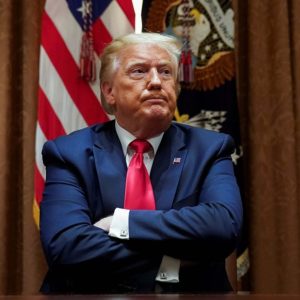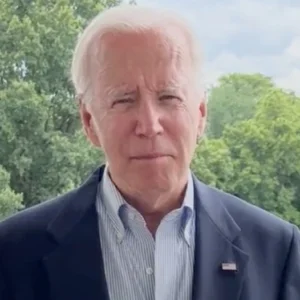Point: The Indictments Fit the Crimes

For an alternate viewpoint, see “Counterpoint: Unwarranted Charges Demonstrate Two-Tiered Justice System.”
Donald J. Trump is the first former president in our nation’s history to be indicted. He is also the first former president to be indicted twice. Tuesday, he became the first former president to be indicted a third time — in this case, for charges including conspiracy to defraud the United States, a conspiracy against the right to vote, and more. A fourth indictment is expected any day now.
His allies say this is overkill, that it is punitive, that it is a continuation of an attack on a beleaguered leader that has continued for seven years. A different frame is this: Trump committed obvious crimes before and during his time in office, and the rule of law is working.
Trump’s first 34 felony counts deal with hush-money payments to a porn star. By buying Stormy Daniels’ silence, the Trump campaign avoided a possible sex scandal in the final weeks of the 2016 campaign. Michael Cohen, Trump’s “fixer,” paid $130,000 to Daniels. Then, while in the White House, Trump reimbursed Cohen with payments from Trump’s company. Prosecutors say Trump fraudulently disguised those installments as legal expenses, in violation of New York law.
Trump has also been indicted on 40 charges related to mishandling classified documents once he left office. Jack Smith, special counsel at the Justice Department, has accused Trump of taking highly sensitive national security documents with him when he left the White House. And thanks to a slew of incriminating photos (bathroom storage, anyone?), we know he kept the documents strewn throughout Mar-a-Lago and showed them to individuals without security clearance. He also obstructed the government in its attempts to secure the documents.
Tuesday evening, the Department of Justice announced that Trump has been indicted on four more charges related to his role in the January 6 attack and his planned conspiracy to try to hold onto his presidency despite losing the general election. The Justice Department’s work builds on the impressive investigation conducted and then shared with the American people via blockbuster hearings by the bipartisan January 6th Select Committee. As we saw laid out in blistering detail from the committee, Trump and his cronies sought to cast doubt on Biden’s victory and then helped to encourage a violent mob on January 6.
The pending indictment in Georgia is also related to Trump’s interference in the outcome of the 2020 election. We all know about the “perfect phone call,” in which Trump called Georgia’s secretary of state and told him he needed to “find” him just 11,780 votes to swing the election. In the same call, the former president also invoked the name of Ruby Freeman — amplifying false claims that she and Shaye Moss had pulled thousands of fraudulent ballots from a suitcase and illegally entered them into the voting machines. (In late-breaking justice on this point — last week, Rudy Giuliani, who had also amplified those false claims, admitted in reaction to a defamation suit that he made false statements about the two Georgia election workers.)
All of these charges are incredibly serious, both the ones already made public and the ones we expect to come soon. Holding the highest office in the land should not and — according to the Constitution, does not — provide immunity from accountability. As would be the case for any other American, our legal system will review and judge Trump’s actions and determine what the consequences of those actions should be.
No one is above the law. To protect the integrity of our legal system and our democracy, it is essential for this case to proceed like any other.



